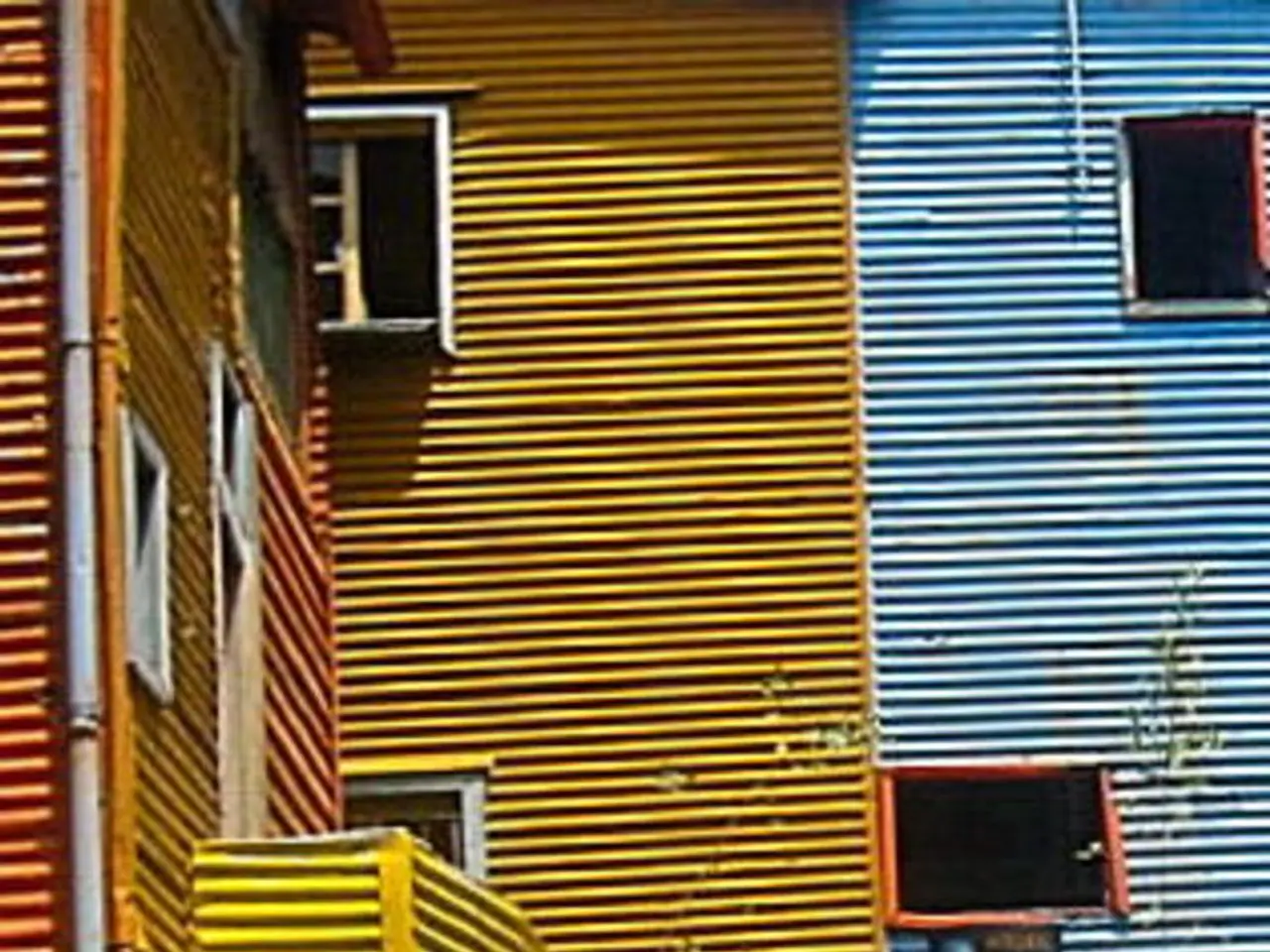Building an Eco-Friendly and Continuous Developing Malmö
Malmö, a city in southern Sweden, is making strides in sustainable construction, positioning itself as a leader in the field. The city's strategies and initiatives are designed to minimise climate impacts from construction and promote circularity.
One of the key projects in Malmö is the Hyllie Terrace, an office building under construction that aims to be climate-neutral. This project utilises recycled materials, low-carbon concrete, and solar panels to reduce carbon emissions both in operation and across the whole value chain.
The emphasis on using recycled building materials and innovations such as low-carbon concrete exemplifies Malmö's efforts to integrate circularity into construction. This approach reduces demand for virgin resources and lowers environmental impact.
Research from the region highlights the adoption of circularity principles using frameworks like the 10R circularity framework, which categorises and structures circular initiatives by reusing, refurbishing, recycling, and reducing waste in the built environment.
Large-scale construction projects, such as the Malmö University Hospital expansion, aim for high sustainability certifications, like the Miljöbyggnad Silver—a Swedish environmental certification ensuring reduced climate footprint and effective resource use.
Malmö integrates Building Information Modeling (BIM) and sustainability consulting in major developments to optimise material use, plan renovations and demolitions carefully, and reduce waste through better digital project management.
The city hosts high-level forums focusing on future-proofing urban infrastructure with an emphasis on sustainable growth and green transitions, highlighting its leadership in resilient and circular urban development.
Dr. Anna Bernstad, the Sustainability Strategist for Malmö Stad Stadsfastigheter, is responsible for reducing the climate impact of public building construction in Malmö. Anna previously worked for Akademiska Hus, where she focused on refurbishing university buildings and deconstruction.
The building sector globally produces up to 60% of all waste and 40% of greenhouse gas emissions. To combat this, Malmö is implementing measures to make the right behaviour the convenient behaviour, such as prioritising cyclists and offering tax benefits for employer-hosted bike rental schemes.
Anna is revitalising public procurement to focus on sustainability and lower climate impacts from construction. The city will no longer consider procurement offers that do not meet its sustainability standards.
Malmö is also exploring ideas of circularity for economic recovery, such as adding movable walls and doors to workplaces for flexibility. The city is investigating the use of biochar for making 'organic' fuel from garden and park waste.
The city's largest project of its kind, the dismantling of the Svävarterminalen, a former hovercraft terminal, will be a testament to these efforts. The heavy load-bearing beams and pillars account for 60-70% of the total climate impact from construction.
Malmö is investing in establishing a market for reused goods as an investment for future relationships with circular construction competent companies. The city is working with companies to expand the supply of reused resources, avoiding the creation of a parallel market and simplifying access to goods.
The city's Sustainable Urban Mobility Plan emphasises easy access to bicycles and bike rental schemes. These initiatives demonstrate Malmö's comprehensive commitment to circularity in construction: innovating with recycled materials and low-carbon alternatives, applying circular economy frameworks, targeting strict environmental certifications, and using advanced digital planning tools to optimise resource efficiency and promote sustainable urban development.
- Dr. Anna Bernstad, the Sustainability Strategist for Malmö Stad Stadsfastigheter, is working to promote environmental-science principles in the city's public building construction, with a focus on reducing climate-change impacts.
- As part of its circular-economy initiatives, Malmö is investigating sustainable-living methods, such as using biochar for making 'organic' fuel from garden and park waste, and adding movable walls and doors to workplaces for flexibility.
- In an effort to achieve sustainable-living in the built environment, large-scale construction projects in Malmö, such as the Malmö University Hospital expansion, aim for high sustainability certifications, like the Miljöbyggnad Silver, to minimise their carbon footprint and optimise resource use.




